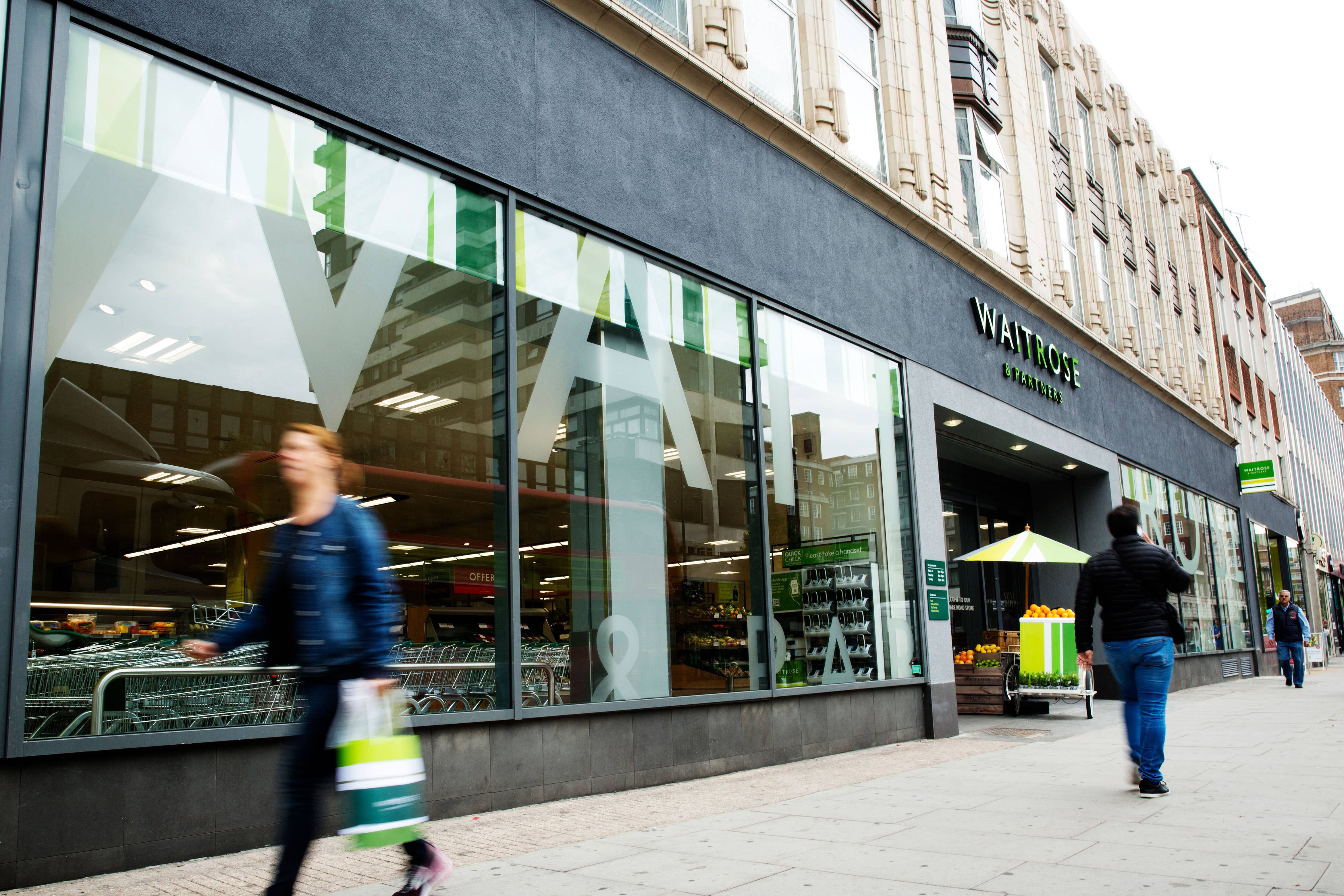Shoppers buying more premium products after cost squeeze, Waitrose boss says
Waitrose executive director James Bailey said its premium ranges were selling much better than a year ago.

Your support helps us to tell the story
From reproductive rights to climate change to Big Tech, The Independent is on the ground when the story is developing. Whether it's investigating the financials of Elon Musk's pro-Trump PAC or producing our latest documentary, 'The A Word', which shines a light on the American women fighting for reproductive rights, we know how important it is to parse out the facts from the messaging.
At such a critical moment in US history, we need reporters on the ground. Your donation allows us to keep sending journalists to speak to both sides of the story.
The Independent is trusted by Americans across the entire political spectrum. And unlike many other quality news outlets, we choose not to lock Americans out of our reporting and analysis with paywalls. We believe quality journalism should be available to everyone, paid for by those who can afford it.
Your support makes all the difference.Consumers are buying more brands and “treats” amid early signs that confidence is improving after the cost-of-living squeeze, the boss of Waitrose has said.
The upmarket grocery chain is targeting new shoppers with plans to open up to 100 convenience shops in locations across Britain.
James Bailey, Waitrose’s executive director, said the grocer was seeing evidence that “people are beginning to feel slightly more confident about their finances”.
“We’ve seen the signs that customers are beginning to trade back into some of the premium tiers – buying more brands, more treat products,” Mr Bailey told the PA news agency.
He said that earlier in August, sales of its premium own-brand No.1 range were up about a fifth compared with the same week a year ago, in terms of volume.
Other premium labels, such as its Duchy Organic food and drink products, were also selling better than last year, he added.
Mr Bailey stressed that people were nevertheless “still looking for a bargain”, with an uptick in spending on promotional and discounted products.
Waitrose announced on Wednesday its expansion plans for the next five years, building on the Little Waitrose model and growing its currently 329-strong chain of shops.
The new stores across Britain will be the group’s first openings in six years.
Mr Bailey, who has been executive director since 2020, said while the convenience sector was a “very competitive space”, there was an opportunity to reach people looking for fresh food more frequently.
“For a variety of reasons, Waitrose is very under-represented,” he said, with about 50 Little Waitrose shops operating across the UK.
In comparison, Tesco, the country’s largest supermarket, has more than 2,000 Express stores while Sainsbury’s has more than 800 Local shops.
Asda has also converted hundreds of sites into Express stores as part of ambitious growth plans.
Mr Bailey said there was “headroom for an awful lot more” than 100 convenience stores, but that was Waitrose’s initial target.
The supermarket group will be looking at high-traffic commuter places, such as train stations and city centres, as well as slightly bigger shops in market towns where there is demand for its products, he said.
The first new Waitrose store is due to open in Hampton Hill, south-west London, later this year, followed by another in the capital in early 2025.